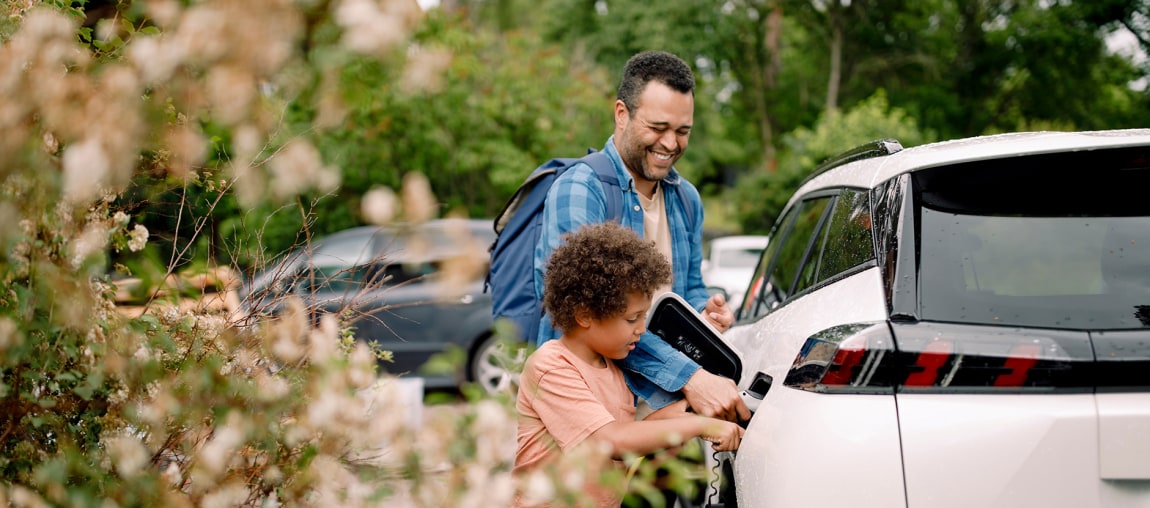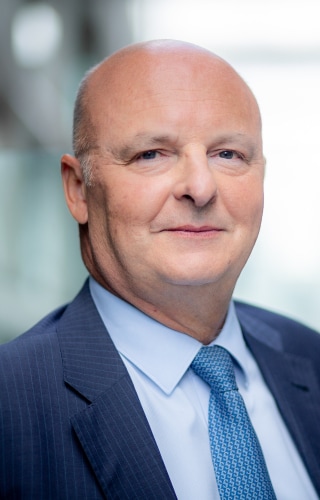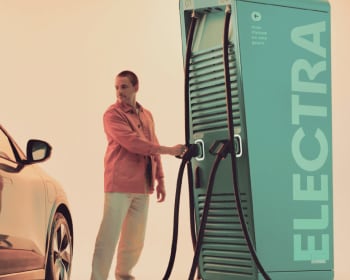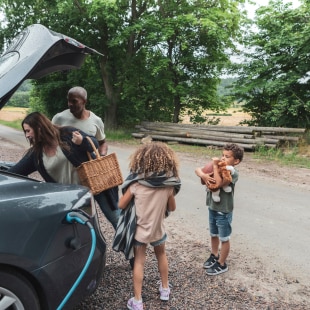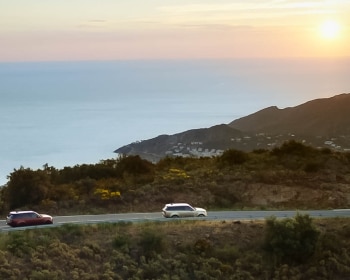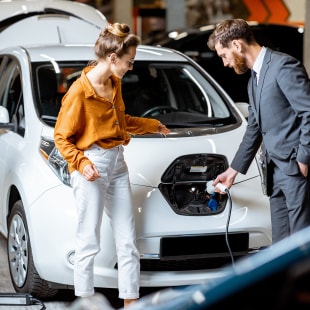Mobility solutions
BNP Paribas has made sustainable mobility one of the key focuses of its GTS strategic plan. The Group’s ambitions are supported by BNP Paribas Mobility, a cross-functional initiative that brings together all of its business lines. By combining the expertise and know-how of our specialized businesses, BNP Paribas Mobility strengthens support and finance transition for players in the automotive sector, and continues to accelerate the deployment of alternative mobility solutions, for all our customers and teams.
The 5 strategic axes of BNP Paribas Mobility
Serving all our customers across the entire value chain
Under the BNP Paribas Mobility umbrella, the Group is making this transition to more sustainable, safe, and accessible mobility through several of its businesses, operating across the entire value chain and according to customer typologies.
- Arval deploys vehicle fleets and new mobility solutions and aims to integrate 700,000 electrified vehicles into its global fleet by 2025.
- BNP Paribas Personal Finance supports its individual customers in their automotive projects, offering them a wide range of financing solutions, from personal loans to leasing with purchase option or long-term leasing.
- Commercial banks and BNP Paribas Cardif offer their customers financing and insurance solutions for their mobility needs.
- BNP Paribas CIB advises and supports major players in the automotive sector and related industries worldwide in their transition to electric vehicle production - as well as institutions that finance infrastructure at national and local levels - in particular through innovative financing such as green bonds and loans.
- BNP Paribas Leasing Solutions provides companies with financing solutions for equipment and related infrastructure and supports them in their transition to electric mobility.
The close relationship we have with our customers and partners enables us to develop a detailed understanding of the challenges of mobility and to build a comprehensive range of solutions that meet the needs of all players in the ecosystem, from manufacturers to end users. As part of our GTS strategic plan, we have placed mobility at the heart of our development projects. Today, we are accelerating, with the strength of our integrated model, to unite all our expertise in the service of our customers' transition to the mobility of tomorrow.
To go further: Find out more about the partnership between BNP Paribas Leasing Solutions and Chargewell, a company specialising in sales and recharging solutions for electric vehicles (EVs), including infrastructure on the Dutch and Belgian markets.
2. Supporting players in the automotive industry
Throughout the world, BNP Paribas supports automakers, equipment manufacturers and distributors in their efforts to decarbonise the sector, develop, digitalise, and transition to more sustainable mobility. In the United States, BNP Paribas took part in the $2.25 billion green bond issue for General Motors in 2022, helping to give the automaker the capacity to build two million electric vehicles a year by 2025, and accompanying its vision of all-electric: to achieve carbon neutrality for its products and operations worldwide by 2040, and eliminate exhaust emissions from its new light vehicles by 2035.
3. Developing tailored offers for new players with large vehicle fleets
For more than 30 years, Arval has been the specialist in long-term vehicle leasing for large international companies, SMEs and professionals. More recently, Arval has diversified its activities to become a key player in integrated mobility, targeting a wider audience that includes drivers be they within a company or private individuals. Thanks to the connected solutions and tailor-made services offered, Arval's corporate customers are able to optimise the mobility of their employees and outsource the risks associated with fleet management.
Arval also actively supports and advises its customers to accelerate the energy transition, giving them the means to be more sustainable. Its strategy aims to rethink the mobility mix by balancing vehicle rental with alternative forms of mobility such as car-sharing, car-pooling, electric bikes and scooters.
4. Creating mobility offers and services for corporate employees
BNP Paribas develops solutions tailored to the needs of companies (such as mobility hubs, electric vehicles and shared bikes, mobility passes, leased bikes, etc.), to facilitate sustainable mobility for their employees.
By signing a strategic agreement with Ridecell, a global provider of fleet automation and mobility solutions, Arval offers its corporate customers a comprehensive range of innovative shared mobility solutions, covering all their mobility needs on an international scale.
Arval proposes the Arval Mobility PASS, a solution dedicated to companies to encourage more sustainable mobility for their employees, particularly for daily commute. This 100% automated, secure and digitalized solution allows companies to configure and manage their mobility policy effectively. Through a payment card made available to employees, the company can easily allow them to use the amount of their Sustainable Mobility Package and/or Mobility Credit on a wide range of more sustainable means of mobility such as public transportation, bike rental or shared mobility.
read our article
And with Arval Connect, an in-vehicle telematics solution, Arval provides access to a detailed analysis of all journeys via vehicle geolocation. This innovation, suitable for all companies, simplifies fleet management.
To strengthen its bike rental (LLD) offer and roll it out more widely to all its customers and teams, Arval has teamed up with start-up Zenride, a bike rental specialist created in 2018. It's a redesigned "all-in-one" offering based on three key concepts: simplicity, universality and proximity, to offer an optimal user experience anywhere in France.
Mobility is being thoroughly reinvented and is becoming a major lever to reduce CO2 emissions and to contribute to a sustainable society. Alongside more traditional mobility players, there already exist many ways to switch to more sustainable mobility. Examples range from green hydrogen to CO2 capturing, sequestering and recycling, and from synthetic fuels to the search for alternative technologies to make batteries and to recycle them. These are all promising paths to progress!
5. Supporting individual customers
While adapting to new uses, BNP Paribas offers its individual customers new mobility products and services to help them adopt more environmentally friendly modes of transport.
To make it easier for its customers to choose their means of transport, BNP Paribas has launched the Mobility4you platform in France in 2023, which offers individual customers a "turnkey" solution for selecting, financing, insuring, and having their vehicle delivered, comprising:
- mobility solutions chosen from over 6,500 available vehicles, new/recent and used - all Crit'Air 0, 1 and 2 - as well as soft mobility solutions, such as electric bikes and scooters;
- tailored financing solutions (personal loans, leasing with purchase option, long-term leasing) and insurance, to be taken out via the platform.
At the same time, electric vehicle leasing is also growing rapidly, opening-up new financing and service opportunities.
In France, Cetelem offers a social leasing scheme to make the acquisition of an electric car accessible to low-income households, at €100 per month for the first three years.
And while the car is still the mainstay of mobility, new modes of travel are developing rapidly: soft mobility such as bicycles, scooters and electric scooters, car-sharing and car-pooling. BNP Paribas is helping its individual customers to adopt these new modes.
- To go further: In Poland, BGZ BNP Paribas has developed the Mamgo platform, which offers new and used vehicles with 3 types of financing options.
On the Move: the BNP Paribas podcast on sustainable mobility
In each episode, BNP Paribas experts share their vision of the challenges, advances and future of mobility, which is becoming more sustainable and inclusive every day.
Arval, one of Europe's leaders in sustainable mobility
Founded in 1989 and present in 30 countries, Arval is a subsidiary of the BNP Paribas Group, which was the first vehicle leasing company to sign the United Nations Global Compact in 2004. By 2025, Arval aims to be the "European leader in sustainable mobility". Leasing over 1.5 million vehicles today, Arval is rolling out its operational leasing offer in sustainable mobility and plans to manage a fleet of 700,000 electric/electrified vehicles. The Arval Mobility Observatory is a research and information platform for analysing and forecasting mobility trends.
visit the ARVAL website
